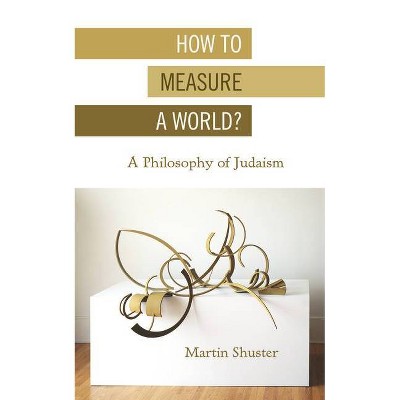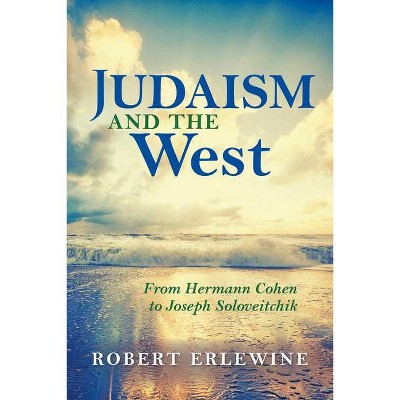How to Measure a World? - (New Jewish Philosophy and Thought) by Martin Shuster (Hardcover)

Similar Products
Products of same category from the store
AllProduct info
<p/><br></br><p><b> About the Book </b></p></br></br><p><i>How to Measure a World?</i> examines the vastness of the Jewish philosophical record and the full intellectual scope and range of Emmanuel Levinas's claim that Judaism is best understood as an anachronism.</p><p/><br></br><p><b> Book Synopsis </b></p></br></br><p>What does it mean to wonder in awe or terror about the world? How do you philosophically understand Judaism? In<i> How to Measure a World?: A Philosophy of Judaism</i>, Martin Shuster provides answers to these questions and more.<br/> <br/>Emmanuel Levinas suggested that Judaism is best understood as an anachronism. Shuster attempts to make sense of this claim by alternatively considering questions of the inscrutability of ultimate reality, of the pain and commonness of human suffering, and of the ways in which Judaism is entangled with the world. Drawing on phenomenology and Jewish thought, Shuster offers novel readings of some of the classic figures of Jewish philosophy while inserting other voices into the tradition, from Moses Maimonides to Theodor W. Adorno to Walter Benjamin to Stanley Cavell.<br/> <br/><i>How to Measure a World?</i> examines elements of the Jewish philosophical record to get at the full intellectual scope and range of Levinas's proposal. Shuster's view of anachronism thereby provokes an assessment of the world and our place in it. A particular understanding of Jewish philosophy emerges, not only through the traditions it encompasses, but also through an understanding of the relationship between humans and their world. In the end, Levinas's suggestion is examined theoretically as much as practically, revealing what's at stake for Judaism as much as for the world.</p><p/><br></br><p><b> Review Quotes </b></p></br></br><br><p>Overall, this book is a valuable contribution to not only modern Jewish studies, but also the broader field of continental philosophy of religion. With a clear mastery of his sources, Shuster carefully weaves his thesis through deeply complicated figures in a way that is both artful and textually sound.</p>--Josiah Solis "Reading Religion"<br><br><p>An introductory study that will have enormous appeal for both students and non-specialist general readers, <i>How to Measure a World?: A Philosophy of Judaism</i> is as informative as it is thought-provoking, and very highly recommended</p>-- "Midwest Book Review"<br><p/><br></br><p><b> About the Author </b></p></br></br><p>Martin Shuster is Associate Professor of Philosophy and holds the Professorship of Judaic Studies and Justice at Goucher College in Baltimore, Maryland, where he previously directed the Judaic studies program and where he currently directs the Center for Geographies of Justice. In addition to many articles and book chapters across a range of topics, he is the author of <i>Autonomy after Auschwitz: Adorno, German Idealism, and Modernity </i>and <i>New Television: The Aesthetics and Politics of a Genre </i>and the coeditor of <i>Logics of Genocide: The Structures of Violence and the Contemporary World.</i></p>
Price History
Price Archive shows prices from various stores, lets you see history and find the cheapest. There is no actual sale on the website. For all support, inquiry and suggestion messagescommunication@pricearchive.us



















